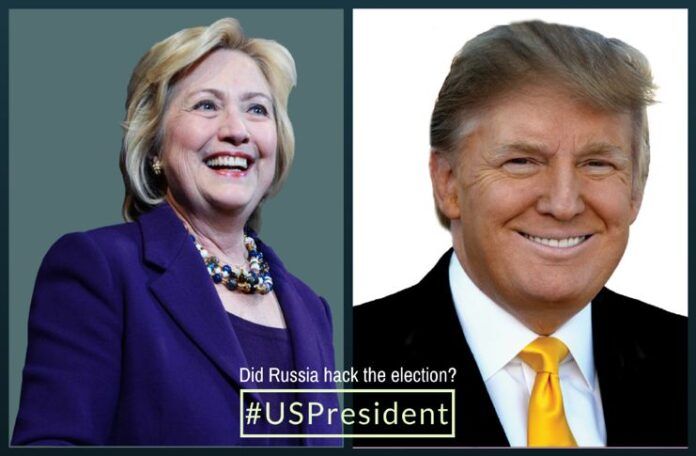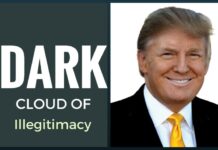
The issue of hacking in American elections is always controversial, but it reached its peak during the 2016 election when the experienced Secretary of State, Hillary Clinton, lost to Donald Trump. Had she won, Clinton would have been the first woman to win the White House – a historic moment. For practical purposes too, America would have had two presidents since Bill Clinton, her husband, was a successful President from 1993 to 2001.
…Republicans like John McCain and Senator Lindsey Graham backed the idea that a bipartisan committee with subpoena powers should investigate the validity of the hacking.1
The official view on hacking as expressed distinctly by the Editorial Board of the New York Times was that the Russian government had a decisive effect on the US elections. The Russians backed Trump to win and the latter had knowledge of this external backing. The Speaker of Congress, Republican Paul Ryan, said that this interference was “unacceptable.” Republican leader in the Senate, Mitch McConnell, said that it was a “matter of great concern.” Other Republicans like John McCain and Senator Lindsey Graham backed the idea that a bipartisan committee with subpoena powers should investigate the validity of the hacking.1
But there were several problems with such an investigation. McCain was staunchly anti-Russian and it seemed that he was misusing his position as Chairman of the Senate Arms Committee to deprive Trump of the Presidency. Correspondent Paul Kaiser recorded that a poll by Morning Consult showed that 71% of Americans did not support the Russian hacking story.2 Besides, 19 congressional committees tackled this issue and no concern was expressed. Democrat President Obama said that he would take retaliatory action, even though he admitted that hacking is a daily event and widespread. The US admitted to their own misdemeanours: they recorded conversations of allies like Angela Merkel of Germany and the President of Brazil. In fact, Congressional leader in the Oversight of National Security Agency and US cybersecurity Jim Hines said unabashedly that “we are better than them (Russians) in hacking into networks.”3 Hines is connected to all 17 intelligence agencies in the US.
Reporter Paul Panko was another reporter who, in this case, was sure that leaders of the intelligence community and the Obama Administration tried in vain to stop Trump from winning the Electoral College vote.4 Although Clinton won the national popular vote by 3m on November 8, 2016, Trump skimmed through this hurdle with 304 (6?) votes when only 270 were needed. In this recount, the ratio of supporters who left the Clinton camp rather than the Trump one was 8:2.5
The neo-con and CIA-FBI theory that blames Russia for hacking is opposed by other theories, the most plausible one being, ‘leaking.’ William Dunkerley, who specializes on communist countries, said specifically that Hillary’s State Department emails were not hacked, but leaked to Wikileaks, and by deduction to Julius Assange.6 If this were so, Russian influence could have been indirect. However, Assange himself said openly that his release of sensitive information would be timed for the election. Confirmation of this view came from an English professor Inna Kurima at the University of St. Petersburg.7 Jewish elites in Russia, who are attuned to developments affecting them, felt that there was no hacking: Trump’s populism, not Clinton’s hacked emails, accounted for Trump’s victory.8
This hacking issue sparked several unanswered questions. Was the murder of Russian ambassador to Turkey Andrei Karlov a retaliatory action?
Georgia’s Secretary of State Brian Kemp complained that his voter database was hacked and the IP address was linked to the federal Department of Homeland Security (DIS.) 9 Kemp also sent an appeal to Trump about 10 similar but separate attacks on his network over the past ten months. The DIS offered no explanation. Two other states with similar complaints were West Virginia and Kentucky. These incidents show that it may not be Russia but the DIS who was testing the waters; the idea was to build an “absolute security” network for “absolute domination,” more like the tactics of a totalitarian state.10
This hacking issue sparked several unanswered questions. Was the murder of Russian ambassador to Turkey Andrei Karlov a retaliatory action? Turkish media thinks so since Turkey had just experienced an abortive coup, allegedly sponsored by an exiled Turkish resident in the US, Fetullah Gulen. Many in Turkey foresee a Third World War ensuing from this murder; they blame the CIA for this plot. Historian Kristine Moore likens this death to that of Archduke Franz Ferdinand, heir to the Austro-Hungarian empire, which led to the First World War.11 The fact that Putin and Trump are on friendly terms, that the next world war will be a nuclear one, and that Turkey seems to be moving into the SCO orbit, explain why peace rather than war was the chosen route. On the other hand, some security officials were wondering why diplomat Karlov did not have Russian bodyguards protecting him.
Blaming Russians for hacking was just one of the numerous techniques to weaken Putin who was giving protection to Syria’s Bashar al Assad. Assad and Russia were blamed for carrying out chemical war against its own people. Aleppo was destroyed to rubble just as Grozny was during the 1994-2000 campaigns. Mosul was heading in that direction. Many saw the fall of Aleppo as a way for Assad to take back the whole country. The US backed the rebels to the tune of $1.5 billion.12 It was an odd situation where the US was feeding the rebels, including ISIS and al Qaeda, with arms and propaganda, and yet claiming to be fighting ISIS.
Assad was on the brink of being deposed, but since he has come back with formidable power, former Secretary of State Madeline Albright was calling for a bi-partisan report that would generate an all-out war against Syria.13 This was in line with the plan to weaken Israel’s neighbours, advanced by former Defense Minister Ehud Barak; the fall of Lybia’s Muammar Gadaffi, the coloured revolutions in the nuclear belt in Eastern Europe and the tribulations in the Middle East must be seen in this light.
The American public, not the elite warmongers, should ask the question whether $255 billion for the civil war in Syria was money well spent. The Syrian Centre for Policy Research estimated that 11.5% of the population was either killed or injured since March 2011; 45% of the population were displaced, almost half of which fled to neighbouring countries; and, life expectancy dropped from 70 in 2010 to 55.4 in 2015.14
In the 2011 Russian election, for instance, Russians claim that the US played a dominant part.
The figures for the Iraq War which was started with a lie and for which the US Intelligence agencies were blamed, do not look prettier either: Iraqi ruler Saddam Hussein was falsely accused of having Weapons of Mass Destruction. The Iraq Ministry of Health and John Hopkins Centre working separately estimated that there were approximately 400,000 “excess deaths,” and 151,000 died by violence. The Iraq War displaced between 3.5 and 5m people.15
Returning to the hacking issue, it appears that Russia had the means and experience to hack. The group leader of the Liberals in the European Parliament Guy Verhofstadt16 noted that in 2016, the Russian government spent $1.25 billion on foreign media campaigns. In the previous year, the Russians hacked the Bundestag and gave the info to Wikileaks, which published them. The Russians also aided right-wing parties and populist movements in Europe to undermine ruling cliques. The Russians might have done the same in the States but there was no concrete evidence. Moreover, there was a time gap between a source giving sensitive information to Wikileaks and timing the leak of that information. This means that it is difficult to name the source and it would be difficult for that source to know how and when that information would be used. The best way forward is to avoid the information emerging from Russian media as the Swedes did with Swedish translations of Sputnik. The US intelligence agencies seemed to take cyberwarfare in their stride as they were experts in the game.
In the 2011 Russian election, for instance, Russians claim that the US played a dominant part. The Americans allegedly tried in vain to prevent Putin and his United Russia Party from gaining victory; they reported that 33-year old Yegar Duda, a volunteer election observer, obtained pictures of the chairman of the Electoral Commission filling out ballots in favour of United Russia. The street protests that followed exhibited posters like, “Russia without Putin,” and “Putin is a thief.” However, when 99.9% ballots were cast, United Russia won 233 seats, the Communist Party captured 92, Just Russia 64 and the National Liberal Democratic Party 56. It was also reported that social media was used to disseminate crime.17
Bibliography
- The Editorial Board, “Investigate Russian Hacking the Right Way,” nytimes.com, December 22, 2016.
- Paul Kaiser, “71% of Americans don’t buy ‘Russian Hacking’ Agitprop story,” russiainsider.com, 21.12.16.
- William Dunkerley, “Congressional Cybersecurity leader demolishes Obama’s hacking case against Russia,” russiainsider.com, December 17, 2016.
- Rudi Panko, “Silent Coup in Progress: American Intelligence Agencies are trying to stop Trump from taking office,” russiainsider.com, December 10, 2016.
- Scott Detrow, “Donald Trump secures Electoral College win, with few surprises,” npr.org, December 19, 2016.
- William Dunkerley, “Flash: Proof in, Russia did not steal Hillary’s State Department emails, russiainsider.com, October 18, 2016.
- Richard Brandt, Fox’s Tucker Carlson continues to ridicule Russia hack story,” russiainsider.com, December 23, 2016.
- Daniel K. Eisenbud, “Russian Jews: Putin did not interfere in US vote,” jpost.com, 13.11.2016.
- Rudi Panko, “Attempted hack of voter database traced to IP address used by the US Government,” russiainsider.com, December 11, 2016.
- Rudy Panko, “Two more states confirm election hacks traced to the US Government,” russiainsider.com, December 18, 2016.
- Kristine Moore, “World War III news: Will Andrei Karlov’s assassination trigger the next World War?” inquisitr.com, December 24, 2016.
- Mozeg Birch, “Busted! The US sent ISIS $1.5 billion in weapons from Europe, Ukraine,” russiainsider.com, December 12, 2016.
- Rudi Panko, “… Madeline Albright urges all-out war with Syria,” russiainsider.com, December 2016.
- Ian Black (ed.), “Report on Syrian Conflict,” the guardian.com, February 11, 2016; see also “Quick facts: what you need to know about the Syrian crisis,”mercycorps.org, October 13, 2016.
- John Tirman, “Iraq: the Human Cost,” mit.edu, October 11, 2006.
- Guy Verhofstadt, “Russia’s hybrid war against the West,” arabnews.com, December 26, 2016.
- Michael Schwitz & Daniel Herszenhorn, “Voters watch polls in Russia and fraud is what they see,” nytimes.com, 12.06.2011.
- Part2 – China’s Road to Superpower status - July 20, 2017
- Part1 – China’s Road to Superpower status - July 18, 2017
- P2 – Can or should Qatar be ostracised? - June 29, 2017










